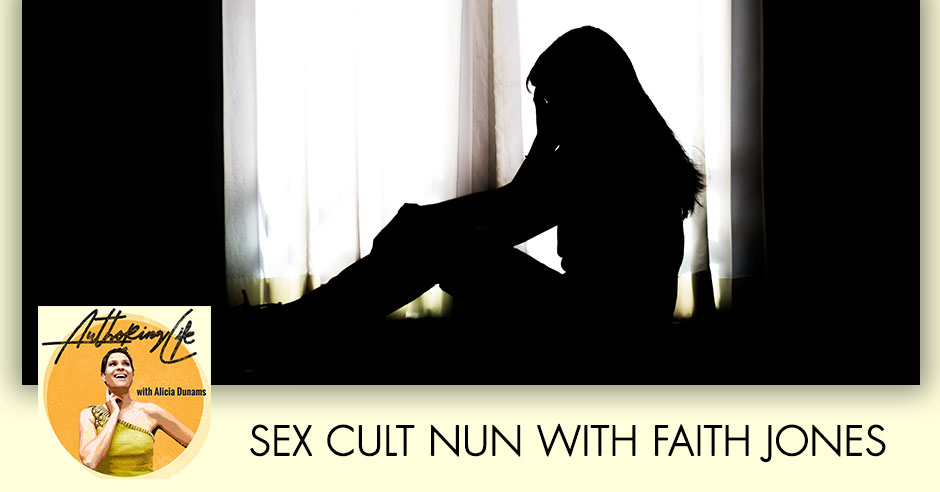
Content Warning: Contains mentions of child and sexual abuse. Discretion is advised.
Abuse is a serious charge that is often levelled against cults. These often leave their victims scarred for life. Faith Jones is a survivor of a sex cult who has created a better life for herself. Join Alicia Dunams and Faith as they take a look back at her experiences within a religious cult. With candor and honesty, Faith lays bare her insights. We also hear Faith’s ideas on healing from abuse. Be inspired with her journey back towards life, and learn how we can support other survivors of abuse.
—
Listen to the podcast here
Sex Cult Nun With Faith Jones
I’m very excited to introduce my next guest, Faith Jones. She’s the author of Sex Cult Nun: Breaking Away From The Children Of God, A Wild, Radical Religious Cult. Let me tell you a little bit about her. First of all, we have a personal connection. I met her many years ago on a hike. It was an entrepreneurship group.
You were telling me about your story. You’re a TEDx speaker and an international corporate attorney. You have created this unique I Own Me framework. We’ll be getting more into that but first, I want to get into this book because I remember we were on that hike and you were telling me about your particular journey in this cult and you are breaking away. Everyone gets to learn more about that. First of all, the question I ask all of my guests is, why did you write a book?
There were a lot of reasons to write this particular book. One of the main reasons is the culmination that comes to the framework and understanding what went wrong in this group and how people can empower themselves. The group I grew up in was called The Children of God. It was founded by my family, my grandfather and my parents.
There’ve been quite a lot written about it, documentaries and other things. It’s quite a famous cult but I felt like I also wanted to write a story that was a bit different than how a lot of these have been written and give people a look into this group but from a person’s eyes growing up in it. I wrote it in the first person of myself at the moment, like a novel where you’re seeing and hearing what I’m seeing and thinking. I’m describing it in that way.
Instead of it being a look back like, “This happened to me,” you are in that moment with me. Something a lot of people don’t get to see in a cult is how the people themselves, while they’re in it or thinking about it, how they’re justifying things to themselves or understanding the world. I thought that it was important to express.
In the book, there are a lot of aspects of sexual abuse, child abuse and rape. As I was older, many different experiences like this coercion spiritual manipulation. At the same time, most of the people in the group, including my parents, were very idealistic. They were trying to do the right thing. They were being told, “This is what God wants,” how my grandfather was interpreting the Bible, interpreting the scriptures.
They were a very dedicated group of people. They were sacrificing, hugely because they believed that this was right. It took some years after I left before I was able to look back, analyze these beliefs and see what had happened, what was false and all of this. What am I being questioned was, how did these people get off track? How did these people start?
It’s impossible to get rid of that power disparity between an adult and a child.
Even at the time, there were still a lot of fundamentally good principles and things they were trying to do or express. Yet, in other ways, they were completely off track and it was very abusive. What was that core? What was that seed of corruption that allowed that to enter and allowed people to not only engage in abusive behavior towards their children and other people but to accept it themselves?
In 2018 was when I created the framework and it was this Greek moment. It descended into my brain. I wrote it down. The power of that was so impressive to me. With it, I was able to define how each of these things was abusive clearly, stuff that seems so fuzzy when you’re listening to this person and the way they’re speaking about good child-rearing and you’re listening to this person who listens to that person and everybody can sound like they have a good reason or rationale or as you like it. When you understand these principles, you can identify right away what is going to be abusive and cause harm.
This enabled me not only to go back and analyze what had happened to me and in the group. In the book, I expressed these different experiences that I had. Later on, as I look back and explain, “This is why this form of child abuse was bad or this form of sexual abuse was wrong. This is why being coerced into having sex with somebody that didn’t want to was rape.”
I can go through and identify it based on principle. It gives us a language in a way to talk about this stuff that I don’t think we had before. I realized I had to write this. I had to even be much more perhaps explicit in what had happened to me in how I described it because I feel like this problem is still everywhere and prevalent in society.
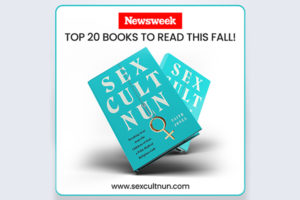
You know this because you wrote a book about sexual harassment. When I left the group, even in normal society, I still saw so many of these things happening. When I spoke to my friends who had grown up in normal society, nice households, from all different economic backgrounds and countries, many of them had experienced child abuse and sexual abuse as children. Many of them experienced sexual harassment, sexual discrimination or abuse in their workplaces.
I realized it still is everywhere. We need these principles to teach us to stand up for ourselves. The call was a microcosm but all of these thoughts, concepts and beliefs came into the cult from outside. They all existed in society. Cult gave them a petri dish, an acceptance and it authorized them, which allowed them to flourish more unchecked for some time but they all existed in society previously and they still do.
To me, shining a light on these issues by shining it on my own life in what happened to me is giving people who had been writing me and stuff the ability to say, “That happened to me too. I wasn’t in this cult but this was my experience.” That’s important. We had that a lot with the #MeToo Movement, where women began speaking up about this. That was needed. We need this for children and for expressing these types of things that happen to kids and young people when they are at such a vulnerable age.
In 2018, you developed this I Own Me framework. The book was in concept at that point but it wasn’t finished. Do you feel looking back on your life in that framework gives you the ability to have a more neutral stance on what happened to you?
I’m a lawyer, so I’m used to trying to be objective when I look at things and facts and that’s also part of my personality. The framework helps people to look at things objectively and that can be hugely helpful in healing because oftentimes, there’s so much confusion and emotion mixed up in things that happened to us in our past. It also helps us to have these discussions with other people, whether it is with people in our family, our loved ones, the police, the authorities or even with our abusers. It gives us the language to describe to them, “This is what was wrong. This is what that violation was, this thing that happened.” Getting that clarity is so helpful.
Some things happened to me when I was a kid. Those are the currents I read about when I’m six in the book. The adult is like, “Come. Do you want to do this? Check this out,” for me to give an adult man a hand job. At the time, as a kid, we were taught, “Sex is good. Everything is godly. This is all beautiful. We want you to enjoy your bodies without shame.” There’s nothing wrong with that but then where is that step where you go too far and into abuse? There was this concept of, “If they are interested, let them explore.”
There’s a line there that you can’t have with a kid. For a long time, I was like, “I went along with it. I agreed to it.” You feel like it’s your fault. A kid cannot be at fault in that situation. This is where when I teach these principles, it helps get clarity for that. It is the third ring on this. Anytime there’s a deal, there are five elements to this that have to exist for this to be a good enforceable contract in the law but for it to be a good deal and not to be violating somebody. Two of those principles, one is the mental capacity to understand what you’re doing. The other is no undue pressure.
Five principles have to exist. These two are critical anytime you’re talking about engagement with children. A child does not have the mental capacity to understand the future implications of what they are doing, agreeing to and giving up, which is why we do not allow children to enter into contracts. The second is undue pressure in a contract. It means that someone is applying negative pressure to get you to do something you wouldn’t otherwise do or agree to something you wouldn’t otherwise agree to if it was an environment free from this type of pressure.
The core principle to get back to a true ethical standard is when you say, “I fully own myself. I’m fully responsible for my actions”.
If somebody says, “You signed this contract. Otherwise, I’m going to post these incriminating photos of you on the internet,” what do we call that? Blackmail. We have emotional blackmail that therapists talk about that we engage in with each other. All of these principles exist in contracts but they exist in relationships at every single level. For a child, anytime there is a power disparity, there is the possibility for abuse and trauma.
This parallel or disparity can also be in the person’s mind in some cultures where men are considered much stronger, more powerful, if a certain position of the role of authority over women that there may be a power disparity there inherently but certainly, in cases where it’s like a boss and an employee. Anytime there’s an adult and a child, that power disparity is impossible to escape in an adult-child relationship because children are biologically designed to need to please those in authority for their survival, which is why children, if the adults said, “You think that’s good? Great. Let’s do that,” don’t have the ability to say, “No. I’m going to make the right decision for me.” You can’t do that as a kid.
When you think about growing up in an environment where there’s a lot of corporal punishment where you’re beaten, spanked and stuff for doing things, you’re creating this whole environment of coercion where someone doesn’t feel like it’s okay to say no because they feel like they might get in trouble if they do. That all feed into this. It’s impossible to get rid of that power disparity between an adult and a child.
I talked about this in my book because there were times when I played doctor with my little friend, who was almost the same age as me and we were like, “What’s this?” We are doing our little thing. The content that we were allowed to view, encouraged or taught was way too adult for us. We’re hyper-sexualized as children but when we were playing with no sense of pressure on adults or anything like that to people the same, I didn’t feel like I had a negative impact from that. Any time it was somebody older or in a different position of authority over me and that was happening, anytime somebody put themselves into my space, then I did have that sense of, “This is wrong.”
As I got older, it became a trauma violation, which is very different. As I began to analyze these different occurrences that had happened to me in my life and I could look at them based on the framework and say, “This is why that felt wrong or traumatizing and this one didn’t.” It gives you a whole other clarity that you can look at things, talk about them and have a discussion. That’s important and powerful for healing.
It reminds me of something I always say, “The context creates the content.” What you were describing is playing with a child your age didn’t have the same impact as the power hierarchy of being with an adult. That’s why the context is important. We’re talking about rape and sexual abuse. Thank you for sharing that.
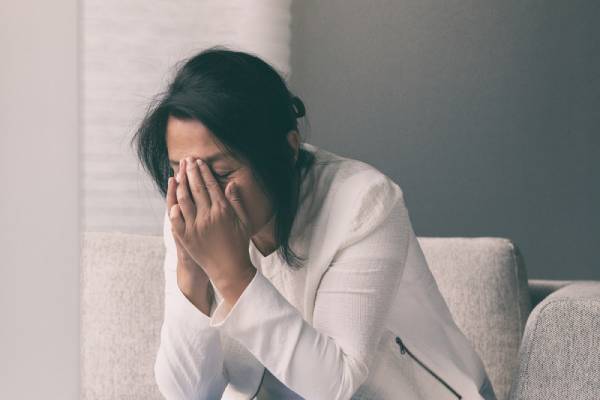
I wanted you to share with our audience some high-level lessons from your book that you think people could take away. We want everyone to go to your local bookstore or Amazon.com to purchase Sex Cult Nun. This is the story of Faith Jones’ life, where she goes through a very historical description of how the Children of God were created. I found that interesting in your book. I’d love for you to share what are some other lessons in addition to I Own Me.
You can get to one part in the book and each chapter is happening in a different country. There’s a wide variety of experiences, growing up on a farm in Asia, in the middle of nowhere and learning how to survive, rebuild a whole village and create a farm. We had all kinds of stuff going on like leaving home at sixteen, going to Japan and traveling to all these countries still in the group. Eventually, managing to leave the group. I also talked about how we came to America at one point. One of the things that the cult did was they would separate couples and take away children from their parents.
The whole fundamental concept that went wrong and the core of this is they told people they didn’t own themselves. They took away a person’s sense of self-ownership. The core principle to get back to a true ethical standard is when I say, “No. I fully own myself. I’m fully responsible for my actions but I also get to fully choose what I want to do and be. I fully own me,” versus what they would try to do.
This is prevalent in any manipulative group. This is what happened in communism, the state owns the people. Therefore it doesn’t matter. It’s not looking at the rights of the individual. It’s okay if we slaughter these million people, even if they didn’t do anything because we’re doing it for the greater good of our society. That is this concept that is so violating.
It happens in all these kinds of groups where they’re like, “If you have to suffer this trauma or abuse for the good of others or the group, then you should take it because you don’t own yourself anyways.” They had a whole doctrine called flirty fishing, where women were supposed to go outside of the group and sleep with men as a way of recruiting them or getting them to give donations. The women were told, “It doesn’t matter if you don’t like the man. It doesn’t matter if you’re not attracted to them. You need to sacrifice yourself. You don’t own yourself or your body. God owns you. You need to sacrifice it to do whatever.” “God says,” but it was whatever the leadership told you to do.
That was how this got in and how people would allow themselves to submit to these kinds of abuses. If you don’t own yourself, then you don’t own what you create. The next level is the ownership of your creations. You are supposed to work and never get paid or any value in return. The next level is the deal if I feel like I truly own this thing. I’ve created this. I get to exchange it for something else and I have principles that keep me from committing theft or allowing somebody else to do that to me. The principle of relationship is the deal. That was violated constantly because it is forcing you to do different things or take different actions based on the fear that God was going to punish you if you didn’t do it.
You are not responsible for what happened to you as a child. You are responsible for your happiness right now.
My mother was told that she didn’t leave her kid behind and go to this another city. If she leaves her children behind, God might kill her children or do terrible things. This is psychological manipulation. When people are using that against you, that’s theft. I had another experience when I was older. At this point, I was a teenager. I was told to sleep with somebody in the home because group sex was a duty. I wasn’t attracted. I did not like this person. I did not want to be with them. I went through this whole process to try to break my rebellious nature. It was like public humiliation, public prayer, people talking about all of your sins and the things you need to work on.
Sometimes you could be put on probation where you didn’t get the few little things that we did have, which were nice as a movie once a week and a glass of wine. You had to go back and study all the mole letters, which were the letters that my grandfather wrote that the group read. We didn’t have outside influence so much. It’s using all of these tactics to get and coerce people into doing what they said, following the party line. I see this. This type of spiritual manipulation and emotional blackmail still happens everywhere. It happens egregiously in the cult that when people read about it are shocked.
I’m like, “Have you ever tried guilting somebody into doing something? It’s the same thing and principle you’re violating. You are using maybe not quite such a strong tactic.” Those are some of the key things I hope that I help bring out and I tell a specific story. Each of these stories shows a different aspect of that. One of the key pieces that for me is powerful in what I was able to do, taking back my life, leaving the group, taking responsibility for myself, going to college and going after what I wanted as a human was that I recognized from a very young age that it was on me.
It was my responsibility. I recognize this from the age of 11 or 12 years old. I realized that my parents were flawed humans. Before my parents had been forcibly separated, my mother was sent away with her three young kids. Two little ones and I were almost babies. We ended up getting accidentally ex-communicated from the group. We were outside the group and had no way to support ourselves. My mother hadn’t got her high school diploma. She had no college or work experience. She had no way to support us. We were living in this camper. I was begging and parking lots to feed my family at the age of twelve and then we had to move in with my grandmother.
In six months, I got to go to one semester of a normal school in America. It opened my eyes up. I was like, “School. Education. I like this. This is cool.” I had to become the adult in the family to help support my mother emotionally as well. When we went back in, that’s when I realized I’m responsible for myself. A lot of people missed is that’s the key to taking back your power. When I say, “I own me,” that first ring, I own my body, thoughts, actions and emotions. That means I’m responsible for them. If I fully own them, I am fully responsible for them.
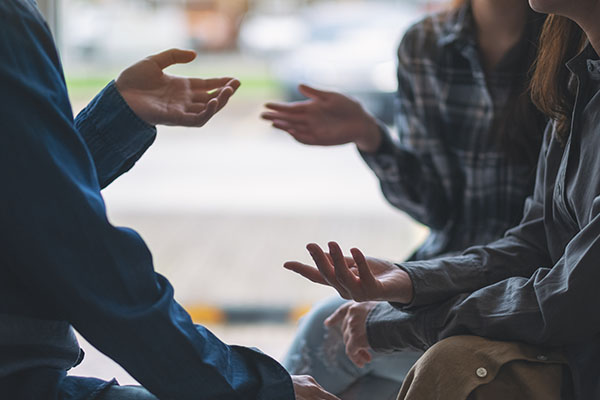
Once I am an adult or I reach at least an age of maturity to understand this, I can’t blame anybody else. I can’t be like, “You made me mad.” The whole point is you talk about emotional intelligence saying, “No. The emotions coming from me, I can choose to stop that, take a different path and respond differently.” That is self-regulation and self-responsibility. I recognized that I was the only one who could change my life and pursue happiness. My happiness was up to me and I was like, “Happiness is a goal. I want to be happy and be taken care of. I don’t want to be living on the poverty line like I see my family doing.”
I’ve had to make those choices and take that responsibility for myself. What I didn’t do and didn’t want to do because I saw the few tiredness of it, was continue to blame somebody else for what I was doing, who I was or what had happened to me. I can look at it clearly from this perspective and say, “Yes. I was violated in these ways. This happened 100% but who I am or what I choose to do with my life, I’m the only one that can choose that.” If I am waiting for someone else to apologize to me, punish or whatever that is for me to let go of that hurt, hatred and move on with my life, I am giving the power of my happiness into the hands of my abuser.
Why would I do that? The person has already proven that they’re not a good person and they’re not out for my best interest. Why would I put the power of my happiness in their hands? It doesn’t make sense. I am responsible. I was not responsible for what happened to me as a child but I am responsible for my happiness now. I went after that with a vengeance.
It’s that whole notion of things happening to you and how do you choose to respond to what happens to you. I have a question for you and it’s our lightning round. What is your legacy? What would be your legacy?
My legacy is creating these fundamental principles that we can give to children and young people to teach them to take responsibility for their life, take their power, have a standard and a system of ethics that they can live by and that they can see someone else is doing something to them. That’s the most powerful legacy. The book is great. People who read it can help them but to me, it’s this framework of fundamental principles. They’ve existed forever. They’re not new but it is simplifying them in a way that anybody can grasp them. We can use it as a standard to judge our leaders, ourselves and our interactions.
The idea that women are property is where all of these concepts that continue abuse stem from.
This is true of most groups. What happened in this group was there was no standard other than the standard of what the guru was saying. He was getting these revelations “from God” using religious scripture to post and justify them. There wasn’t an objective, simple standard that people could look at and say, “This interpretation of the scripture violates this point here, so it can’t be right.” We need a measuring stick for this stuff. That’s what I’ve simplified. I hope that people will take this and use it in their lives so that when they do look at their religious leaders or other people who are claiming this role of leadership, they’ll say, “This person’s teaching this but does it violate this principle that I know to be true.”
If it does violate it, then you can say, “I can’t accept that.” There were people in the cult who, when certain doctrines started coming out about sexual relations with children, were like, “No. I can’t accept that. That’s not right,” and they left. Some people left at different points when some of these different doctrines were coming out, it’s so important to have that standard but where do you get that standard from?
Many people are leaving their religions, churches and everything in droves. I want to ask people, “Where do you get your ethical standard from?” They don’t have an answer for me. They are like, “I sensed. My parents told me something.” There’s no objective standard. That’s what I said, “This is an objective standard. I own my body. If you violate my body, that is a violation of my property. That’s wrong.” It helps with the sexual harassment thing too, because what’s one of the big issues we have there where men used to always say, “I grabbed your butt but I didn’t hurt you.” It was like, “This is my property. You don’t get to touch it without my permission.” It doesn’t have to cause pain for it to be wrong.
It’s the context that women were property and that was religious as well.
That is where all of these concepts that continue this abuse step from. It’s from the underlying subconscious messages that we still receive in society that, A.) Make women afraid to stand up for themselves to claim their full ownership and rights in their bodies and, B.) Make men or other people who were raised in a certain way according to the old standard that they think that’s okay and there’s nothing wrong with that. This gives us an objective way to have that conversation between people.
I want to acknowledge you for using your personal story as a way to create something that will change, support and serve others, especially youth, that you could have the ability to say, “How can I use my story as a lesson to support others and serve others?” That’s beautiful. I’d love for you to share how people can find out more about you and encourage everyone to go to Amazon or the local bookstore, Sex Cult Nun. Where can they find out more about you?
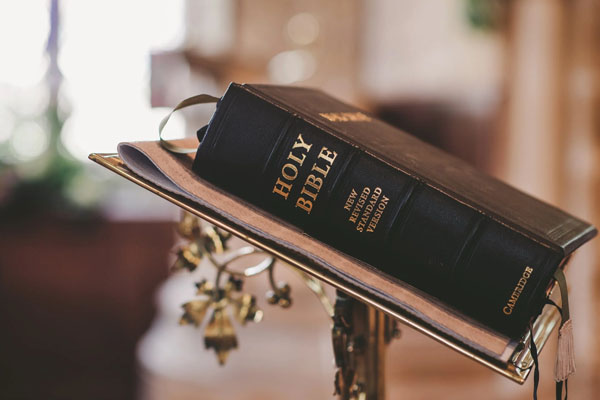
There is a website SexCultNun.com. On there, you’ll see the interview I did with Dr. Oz. There are links on the news and the podcast page to the interview with NPR and Terry Gross and lots of articles. I did an article in Psychology Today. There is a lot of content on that website that you can go to. Click on the link and it will send you where to go to buy the book. Follow me. I’m on YouTube, Faith Jones Author and my Instagram is @IamFaithJones. If you send me a message on Instagram and text me GIFT1, I will send you a PDF book, which is like the 20 Tools For Happiness.
These are the twenty techniques I use for how do you get through tough times? How do you reframe things? I feel like there’s so much that I have learned in my life about resilience, happiness and having a positive framework and mindset. Getting through and recovering from this stuff makes all the difference. I compiled all the different stuff I’ve used and learned into this book. I’m giving that as my way to help.
To help more people to obtain happiness here and now. I want to acknowledge you. You are also available for corporate leadership training with youth and women’s groups as well. You can reach out to Faith to share this important framework, I Own Me, that is groundbreaking and profound. Thank you so much for being here.
Thank you for the great work you’re doing, all the amazing stuff, the books you’re writing and your show. It is exciting to watch all this happen for you.
It is so wonderful to be living life at the same time. I want to acknowledge you for sharing your story. Everyone, until next time.
Important Links:
- Sex Cult Nun: Breaking Away From The Children Of God, A Wild, Radical Religious Cult
- Amazon.com
- Sex Cult Nun
- Psychology Today – How a Sex Cult Survivor Learned to Own Her Own Body
- NPR – ‘Sex Cult Nun’ says discovering self-ownership helped her break free from The Family
- Faith Jones Author – YouTube
- @IAmFaithJones – Instagram
- 20 Tools For Happiness
- www.LinkedIn.com/in/faith-jones-we-rise-free
- www.Facebook.com/iamfaithjones
- www.Instagram.com/iamfaithjones
- www.FaithJones.com
- https://pod-feeds.s3.us-east-1.amazonaws.com/emjHWvALz.pdf
About Faith Jones
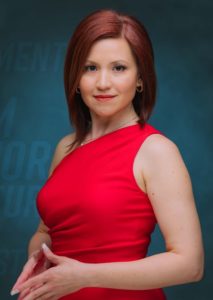 I am a specialist in U.S. and international corporate law, with a passion for coaching entrepreneurs in how to set up their businesses on a solid foundation and in forming successful partnerships and joint ventures. I created The No B.S. Business Structure Program, online business law courses with live Q&A webinars where business owners can go to learn the best practices that protect them and their clients in business structure and contracts.
I am a specialist in U.S. and international corporate law, with a passion for coaching entrepreneurs in how to set up their businesses on a solid foundation and in forming successful partnerships and joint ventures. I created The No B.S. Business Structure Program, online business law courses with live Q&A webinars where business owners can go to learn the best practices that protect them and their clients in business structure and contracts.
I have an international background and a rare combination of experience in corporate law, innovation and product development, entrepreneurship, economic development and non-profit work.
• Experienced M&A and corporate counsel attorney with years of deal experience in the US and internationally.
• Extensive international experience, with years spent living and working in Hong Kong, Macau, Mainland China, Taiwan and Japan.
• Deep understanding of Chinese culture and issues and innate ability to bridge the gap between Western and Asian thought processes, whether negotiating deals or building relationships.
• Educated at Georgetown University and U.C. Berkeley Law School.
I previously worked as an attorney for Skadden Arps in its Los Angeles and Hong Kong offices, and I have represented clients in connection with a variety of cross-border corporate transactions, including mergers and acquisitions, joint ventures and initial public offerings.
Transactions in which I have been involved include assisting the founders of Skype Technologies S.A. in obtaining a $500 million earn out from eBay Inc., and representing Joltid Limited in the sale of Skype by eBay to a private equity consortium.
I spent much of my life in South East Asia and speak Mandarin Chinese. I work with businesses and government leaders in the Pacific Rim and use this insight to assist clients in exploiting the unique opportunities available to clients in Asia.
